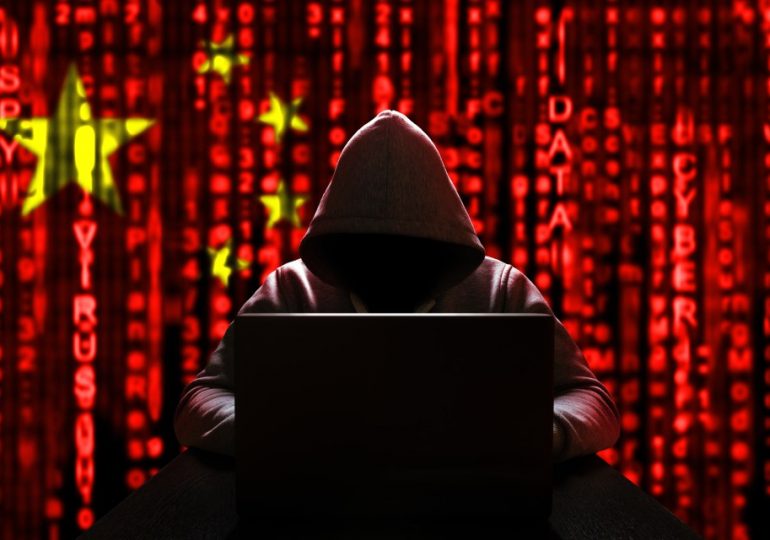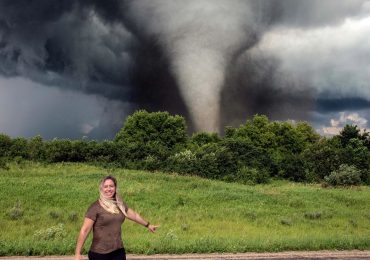CHINA will attempt to disrupt the upcoming US presidential elections using artificial intelligence to stoke chaos in Washington, Microsoft has warned.
The tech giant said China will leverage generative AI technology to flood the internet with synthetic media in a bid to influence the elections.
GettyChinese cyber terrorists will disrupt the US elections using AI[/caption]
AFPXi Jinping’s cyber groups and bot army will create chaos in America[/caption]
GettyPOTUS Joe Biden was attacked with a deepfake video falsely claiming he is a paedophile[/caption]
Getty Images – GettyFormer president Donald Trump himself shared a deepfake video of his interview with CNN in May 2023[/caption]
In a report published by the company’s threat intelligence team, Microsoft said it expects Chinese state-backed cyber groups to target high-profile election campaigns in the US as well as other parts of the world.
“China’s increasing experimentation in augmenting memes, videos and audio will continue – and may prove effective down the line,” the report said.
Major elections are set to take place across different nations this year, and China will – “at a minimum” – aim to flood social media with AI-generated content that “benefits their positions in these elections”.
The report suggests that Beijing has “doubled down” on targets and increased the sophistication of its influence operations against electoral campaigns in the US.
Clint Watts, general manager of Microsoft’s threat analysis, said in the report: “China is using fake social media accounts to poll voters on what divides them most to sow division and possibly influence the outcome of the US presidential election in its favour.
“China has also increased its use of AI-generated content to further its goals around the world,” as well as in the US.
The threat centre reported late last year that social media accounts “affiliated” with the Chinese government had used social media accounts to impersonate US voters to influence midterm elections in 2022.
“This activity has continued and these accounts nearly exclusively post about divisive US domestic issues such as global warming, US border policies, drug use, immigration, and racial tensions,” Watts wrote.
“They use original videos, memes, and infographics as well as recycled content from other high-profile political accounts.”
Xi Jinping‘s cyber groups and bot army had already attempted to disrupt the Taiwanese presidential elections that took place in January, the tech giant reports.
It says it saw a surge in the use of AI-generated content used to augment China-linked online influence operations aimed at the presidential election in Taiwan in January.
One of the Beijing-backed groups called Storm 1376, also known as Spamouflage or Dragonbridge, was highly active during the Taiwanese election, The Guardian reports.
It pushed a series of synthetic media against William Lai – a pro-sovereignty candidate opposed by Beijing – that made baseless claims accusing him of embezzling state funds.
Deep fakes and AI-generated TV news anchors were also used to push certain narratives in a bid to manipulate public opinion in Taiwan.
Microsoft added that Chinese groups continue to mount influence campaigns in the US.
It said Beijing-backed actors are using social media accounts to pose “divisive questions” and attempt to understand issues dividing US voters.
“This could be to gather intelligence and precision on key voting demographics ahead of the US Presidential election,” said Microsoft in a blog post accompanying the report.
Rise of deepfakes
Former White House information officer Theresa Payton previously told The Sun how the chilling rise of deepfakes and AI will change the face of the 2024 US presidential elections.
Payton said American voters will face a flood of propaganda in a bid to sway electoral campaigns, blurring the lines between reality and fiction.
Deepfakes and altered multimedia have flooded the internet – more in the past year – attacking top politicians to build certain narratives.
Doctoring photos, video and audio through artificial intelligence has never been easier – and the results can be extremely deceiving.
“Deepfakes are absolutely going to be front and centre of the US presidential elections,” Theresa told The Sun.
“Propagandists could use AI to create fake documents, audio, and videos about candidates, influencing public opinion and potentially causing division within society.
I don’t doubt for a moment China is already working on hijacking the presidential elections using AI tools
Theresa Payton
“Notable people who have influence could be shown saying or doing something that they never did, spreading disinformation and misinformation.”
According to DeepMedia, a company working on tools to detect altered media, the creation and circulation of video deepfakes of all kinds increased threefold in 2023, when compared to the previous.
The same is the case with voice deepfakes, which increased a whopping eightfold in the same period.
In May last year, former president Donald Trump himself shared a deepfake of his interview with CNN.
The doctored clip showed CNN anchor Anderson Cooper saying: “That was President Donald J. Trump ripping us a new a**hole here on CNN’s live presidential townhall.”
While the lip movement of the anchor does not match the words being said, the video is still convincing for those who are not aware of the likes of deepfakes.
A few months ago, US President Joe Biden was attacked with a deepfake video falsely claiming he is a paedophile – an incident that forced an urgent investigation into Meta‘s policies for manipulative content.
While the seven-second clip was not AI-generated, it was still leveraged to manipulate people’s opinions.
Payton said she is sure that China would be looking to sow chaos in America during the elections.
“I don’t doubt for a moment China is already working on hijacking the presidential elections using AI tools,” she said.
Before the popular rise of AI, doctoring videos and images with great accuracy required expensive software and high levels of technological knowledge.
But the tools have become increasingly accessible to the public – and almost anyone can create a fake image, video or audio clip.
Leave a comment








